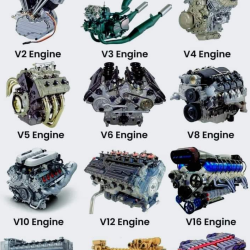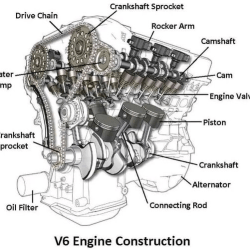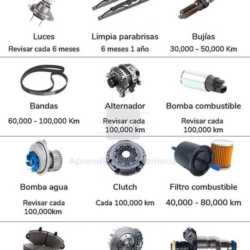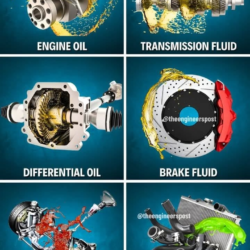Engine tuning is essential for maintaining performance, efficiency, and reliability. Here’s a breakdown of common issues, their symptoms, and solutions:
1. Mixture Adjusting Screw
- Problem: Controls the air-fuel mixture in the carburetor. Incorrect adjustment causes lean (too much air) or rich (too much fuel) conditions.
- Symptoms:
- Lean: Pinging sounds, overheating, reduced power.
- Rich: Black smoke, poor fuel economy, spark plug fouling.
- Fix: Adjust the screw according to the manufacturer’s specifications or a tuning guide.
2. Carburetor
- Problem: Mixes air and fuel. Dirt, wear, or improper adjustments can disrupt its function.
- Symptoms:
- Stalling, hesitation during acceleration.
- Poor fuel economy, trouble starting.
- Fix: Clean the carburetor using a specialized cleaner, or rebuild/replace it if necessary.
3. Spark Plug
- Problem: Ignites the air-fuel mixture. A faulty or worn plug causes ignition issues.
- Symptoms:
- Misfires, rough idling, reduced power.
- Difficulty starting.
- Fix: Inspect and replace spark plugs if they appear worn or fouled. Use plugs recommended by your vehicle’s manufacturer.
4. HT Lead (High-Tension Lead)
- Problem: Transports the electrical charge from the ignition coil to the spark plug. Damage or wear can weaken the spark.
- Symptoms:
- Similar to a faulty spark plug: misfiring, rough idling, loss of power.
- Fix: Inspect the HT lead for damage, cracks, or wear. Replace if necessary.
5. Cylinder Head
- Problem: Houses valves and combustion chambers. Damage or warping can lead to leaks and performance loss.
- Symptoms:
- Loss of power, overheating.
- Coolant leaks, knocking noises.
- Fix: Check for warping or cracks. Repair or replace the cylinder head as needed.
6. HT Adapter
- Problem: Connects the HT lead to the spark plug. A loose or damaged adapter causes poor spark delivery.
- Symptoms:
- Misfiring, rough idling, loss of power.
- Difficulty starting.
- Fix: Ensure the adapter is securely connected and inspect for damage. Replace if needed.
Diagnosis and Solutions
1. Visual Inspection
- Look for visible wear, cracks, leaks, or loose connections.
2. Use Diagnostic Tools
- Modern vehicles allow for diagnostic code reading to pinpoint issues quickly.
3. Seek Professional Help
- If the problem persists or is too complex, consult a certified mechanic.
Why Engine Tuning Matters
Proper tuning ensures:
- Optimal Performance: Smooth acceleration and power delivery.
- Fuel Economy: Reduces wasteful fuel consumption.
- Longevity: Minimizes wear and tear on engine components.

If you notice symptoms like misfiring, black smoke, or hesitation, addressing these issues early will save you time and costly repairs in the long run.

















